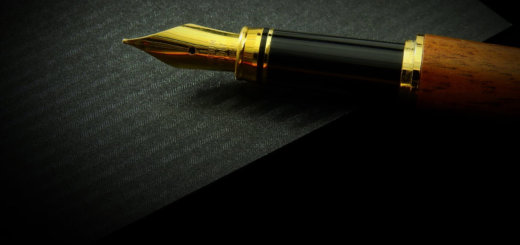GET INTO THE FLOW STATE, OFTEN
You know that feeling you get when you’re in the middle of a task and you feel so fully immersed that you don’t want to stop anytime soon? When it feels like you’re in “the zone” and time suddenly seems to vanish?
It could be when you’re studying a new material and it seems all the right information is hitting you at the right time; you’re focused, actively learning and actually enjoying the process.
That experience is called flow. Yes, like that. Flow state.
Flow is the optimal state in which you are performing and feeling your best. As a student, you are learning exponentially at this point and you just want to be here, in the world of knowledge.

Why is the flow state good for us?
Productivity is a by-product of deep work. When you’re in the state of flow, you’re not just getting a lot of work done, but you’re doing it the most effective way possible.
Flow helps you enjoy your task in the present while helping you do quality work at the same time.
Now for you to get the most out of flow, you must be able to maximise your ability to get into and sustain your flow state.
How do I get into flow?
Now, to get into flow, you must overcome a certain “activation energy”. I see it as that initial friction you get when you’re just getting started with a task. For me that may look like the empty page that stares back at me each time I write a new blog post.

Well, I won’t say I overcome this friction each time, because on some days the task looks so daunting I tell myself I don’t have enough inspiration to write. On other days, I find myself rewriting the same first paragraph a number of times until I decide it’s not good enough.
Interestingly, I’ve found that writing out an outline of what I want to write about helps me get into the flow quicker than I imagined. And sometimes just rambling about the topic on my first draft gets me pumped about the final piece.
So I’m not sure there’s a perfect formula to overcome the initial friction, but here’s a few tips in sustaining your flow state and squeezing the juice from each deep work session you manage to begin.
1. Yell “NO” to distractions: If you’ve had any experience with flow state, you’d hate the way distractions seem to pull you away from your work. And then get you right back to needing motivation to begin again.
One way to avoid this is eliminating all external distractions mostly by prediction.

Inform those around that you’re about to study and let them know you’d like to focus. Put your phone away, switch off notifications or at least, hide that screen.
Plan what you want to study and get all materials and resources into your study space ahead of time.
If your thoughts tend to wander off during study, do a brain dump. Make sure you’re not anxious, hungry or tired before you start.
(To do a brain dump, simply get a piece of paper and write out everything on your mind at the moment— usually things you need to do later)

2. Set the environment and leave often: Time. Breaks. Music.
Time. You want to set your flow state to be at a time you are most awake and when you are less likely to be distracted.
Even if those around you don’t mean to disturb, you may simply be working on different schedules.
Move your tasks around and do deep work early in the morning or late at night when your roommates are either asleep or also busy doing their own work.
Don’t take breaks- often. Don’t disrupt your flow by taking automated breaks if you’re in the middle of “the zone”. Instead take breaks by listening to your body, only when you really need to. That way you’re rejuvenated and ready for another deep work session.

Music. I see music as a memory cue that you’re getting back into flow as you start your task or even after your break. Listen to some relaxing beats or instrumentals to keep your mind in check.
3. Do the task: You might not be reaching flow state often even if you eliminate distractions and create the right environment.
To attain and maintain flow state, you must make sure you’re clear about which specific task you want to complete and how.
If you’re working on too many things at once (or in one work session), your mind is constantly switching attention and you will get overwhelmed.
When you decide on the task you’re working on, also determine what you want to accomplish. This will keep your mind from wandering and help you anticipate the reward of completing it.

Finally, it is important to know that flow state can be induced not only for studying, but even for simpler tasks like doing the dishes or cleaning your space. Seek to get into the flow more often and learn to enjoy every single task you get to do.




Recent Comments